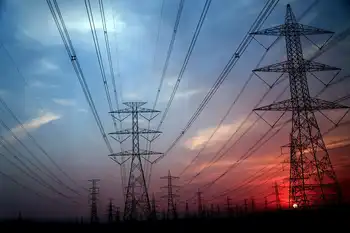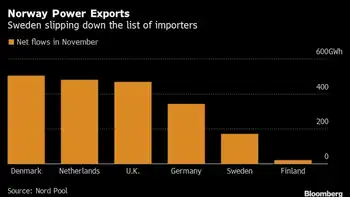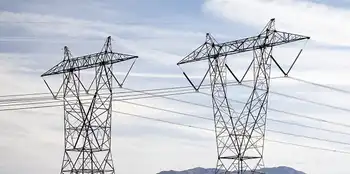TEPCO faces $25 billion in liabilities
TOKYO, JAPAN - Tokyo Electric Power may be asked to shoulder half of an estimated $49 billion in total compensation for damages stemming from its crippled nuclear power plant with other power firms to bear the rest, a Japanese newspaper reported.
Officials from the government, Tokyo Electric, and creditor banks have been scrambling to craft a scheme that would allow the utility to cope with the bill of compensating those displaced by the crisis at its Fukushima Daiichi plant, while continuing to operate as a private firm.
The draft government plan reported by the Asahi newspaper could mark a significant development in those efforts because it puts a ballpark figure on the total cost at 4 trillion yen US $49.2 billion and suggests a cap on Tokyo Electric's burden.
Uncertainty over the likely cost of compensation as well as the prospect of unlimited liability for Tokyo Electric, commonly known as TEPCO, has unnerved investors since the crisis, triggered a widening of corporate bond spreads.
The plan calls for TEPCO to pay 2 trillion yen in compensation over 10 years. Of the 200 billion yen in annual payments, half would come from a roughly 16 percent increase in electricity prices, the newspaper reported.
"The 2 trillion yen figure would be positive in the sense that it helps erase some uncertainties hanging over Japan's utilities sector," said Ariel Hsiao, manager of HSBC Global Power & Resources Equity Fund in Taipei, which sold its entire holding of TEPCO shares after the March 11 disaster.
The other half of the 400 billion yen annual bill would come from Kansai Electric Power and seven other nuclear plant operators, which will put money into the fund in proportion to their electricity output, the Asahi said.
To shore up TEPCO's finances and prevent debilitating credit ratings cuts, the fund will buy 1.6 trillion yen worth of preferred shares in the utility, whose market value has shrunk by three-fourths since the crisis to about $8 billion.
A TEPCO spokesman said the information in the Asahi report was not based on any disclosure from the company.
TEPCO has started making provisional compensation payments to residents and local governments after the March 11 earthquake and tsunami tore through the Fukushima Daiichi plant, causing it to leak radiation and prompting an evacuation of surrounding areas.
The question of whether to put a ceiling on TEPCO's burden has been one of the most contentious issues in discussions on the compensation scheme, delaying its official announcement from an initial target of the last week of April.
While TEPCO and its creditor banks have pushed for an upper limit, arguing it was essential to prevent a drop in its credit rating to junk status, many politicians have sought to take a hard line on the utility, characterizing it as the primary bearer of responsibility for the nuclear disaster.
Chief Cabinet Secretary Yukio Edano said that there would be no ceiling set on TEPCO's liabilities and that it should not qualify for an exemption from compensation under Japanese law.
The mention of specific liabilities figures in the draft government plan may be aimed at allowing TEPCO to make the cost calculations it needs to close its books for the past business year ended in March, the Asahi said.
TEPCO is now expected to report a net loss of about 800 billion yen for the past year and will aim to return to profit in four years and resume issuing bonds from the financial year starting in April 2015, the newspaper said.
The draft estimates the cost of scrapping the six reactors at Fukushima Daiichi plant at 1.5 trillion yen and the additional fuel costs to run thermal power generators at about 1 trillion a year, the paper said.
The plan also calls for annual cost cuts of 150 billion yen by the next financial year and a total of 300 billion yen to be generated by the sale of real estate, stocks and other assets, the Asahi said.
Related News

Chief Scientist: we need to transform our world into a sustainable ‘electric planet’
LONDON - I want you to imagine a highway exclusively devoted to delivering the world’s energy. Each lane is restricted to trucks that carry one of the world’s seven large-scale sources of primary energy: coal, oil, natural gas, nuclear, hydro, solar and wind.
Our current energy security comes at a price, the carbon dioxide emissions from the trucks in the three busiest lanes: the ones for coal, oil and natural gas.
We can’t just put up roadblocks overnight to stop these trucks; they are carrying the overwhelming majority of the world’s energy supply.
But what if we expand clean electricity production carried by…




